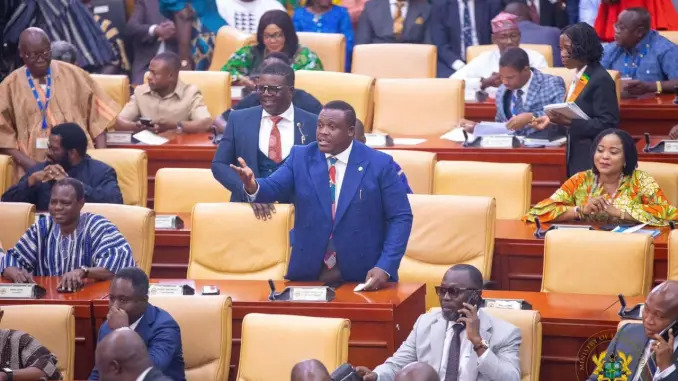- by arkoh
- February 13, 2024
Click the link below to join Our WhatsApp group for daily brief on current trends in the country.
Join Here!
Loading

On February 28, 2024, Parliament passed the bill which outlaws LGBTQ activities and criminalizes its promotion, advocacy and funding.
Individuals found guilty would face a jail term of 6 months to 3 years, while promoters and sponsors of the act could face a 3 to 5 year jail term.
Concerns about possible human rights violations have been raised by civil society groups and the international community with the United States warning there may be serious implication for Ghana’s economic development.
The Ambassador of the United States to Ghana, Virginia Evelyn Palmer on the official handle of the US Embassy on X said:
“I am saddened because some of the smartest, most creative, most decent people I know are LGBT. The bill Parliament passed takes away not only their basic human rights but those of all Ghanaians because it undermines their constitutional rights to freedom of speech, freedom of assembly and freedom of the press. It will be bad for public order and public health. If enacted, it will also hurt Ghana’s international reputation and Ghana’s economy.”
Board Chair of CDD-Ghana, Professor Audrey Gadzekpo, said the anti-LGBTQ+ bill was unnecessary as some of the issues it seeks to tackle are already catered for in various criminal laws.
Prof. Gadzekpo said on the issue of homosexuality, portions of the criminal code already address it and so she could not understand the need to propose another bill to punish people believed to be involved in the act.
“We even already have the act that is interpreted as homosexuality. That act which says unnatural carnal knowledge, the criminal code already has it”, she said.
The Commissioner of the Commission on Human Rights and Administrative Justice (CHRAJ), Joseph Whittal, has also questioned what legislators were trying to achieve with the introduction and subsequent passage of the controversial anti-LGBTQ+bill.
According to him, the world is fast becoming a global village; therefore, enacting laws based on culture and tradition is retrogressive.
“This bill is not a law, so it cannot be used against anybody. There are still processes to make it a law. That is why I am raising the challenge to the presidency to consider whether he shouldn’t exercise his right of rejection on the basis of constitutionality aired against human rights. If it makes it through him, and if he also assents, I know there is a bunch of people who are ready to challenge the constitutionality of this bill before the Supreme Court.”
The bill passed by parliament has also been welcomed by many individuals who claim to be committed to upholding Ghanaian family values.
Moses Foh-Amoaning, the Executive Secretary for the National Coalition for Human Sexual Rights and Family Values Bill, believes that President Akufo-Addo will sign the recently passed anti-LGBTQ+ Bill.
He underscored the potential political implications if the President fails to sign the Bill, warning that the opposition National Democratic Congress (NDC) could gain political advantage in the 2024 general elections.
“If he refuses to sign, it would be very easy for the NDC, [they] will just package the NPP as Trumu Trumu party,” he stated in an interview on 3FM.
Civil society groups are exerting pressure on President Akufo-Addo to reject the newly passed anti-LGBTQ+ bill.
The Commission on Human Rights and Administrative Justice (CHRAJ), has served notice that it will join any group that heads to the Supreme Court or even lead the charge if President Akufo-Addo gives his assent to the anti-LGBTQ+ bill passed by Parliament.
Just as President Akufo-Addo said in his penultimate address on the State of the Nation to parliament last Tuesday, the buck stops with him, and Ghanaians are currently awaiting the position of the President as he is expected to assent to the bill; or explain to parliament why he is unable to let the bill pass.

Click the link below to join Our WhatsApp group for daily brief on current trends in the country.
Join Here!
0 Comments: